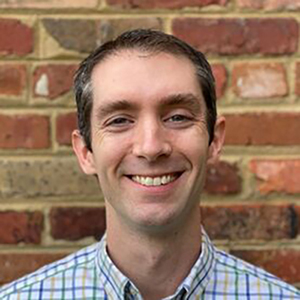
Adrian Gilmore
Adrian Gilmore
Office: University of Delaware, 328 Building X, Newark, DE 19716
Education
- Ph.D. – Washington University in St. Louis, St. Louis, Missouri
- A.M. – Washington University in St. Louis, St. Louis, Missouri
- B.A. – Colby College, Waterville, Maine
Biography
Adrian Gilmore, Ph.D., is an assistant professor in the Department of Psychological and Brain Sciences at the University of Delaware. He is broadly interested in human memory, which he studies using a combination of behavioral experiments and neuroimaging approaches.
Dr. Gilmore received his Ph.D. from Washington University in St. Louis in 2016, where he studied functional brain networks that support retrieval processes in human memory under the guidance of Dr. Kathleen McDermott. Dr. Gilmore was a postdoc, and later a research fellow, with Dr. Alex Martin in the Laboratory of Brain and Cognition at the National Institute of Mental Health. Here, he developed novel methods to study autobiographical memory retrieval in humans using fMRI. He also explored how repeated exposures to a stimulus lead to changes in the neural responses it evokes.
Dr. Gilmore joined the Psychological and Brain Sciences faculty in 2024. His current research focuses on parietal lobe contributions to memory, and in particular to processes that let us recognize familiar stimuli. In addition, he continues to explore the cognitive and neural systems that let us access autobiographical memories.
Representative publications:
Gilmore, A.W., Nelson, S.M., & McDermott, K.B. (2021). Precision functional mapping of human memory systems. Current Opinion in Behavioral Sciences, 40, 52-57.
Gilmore, A.W., Quach, A., Kalinowski, S.E., González-Araya, E.I, Gotts, S.J., Schacter, D.L., & Martin, A. (2021). Evidence supporting a time-limited hippocampal role in retrieving autobiographical memories. Proceedings of the National Academy of Sciences of the United States of America, 118, e2023069118.
Gilmore, A.W., Kalinowski, S. E., Milleville, S., Gotts, S.J., & Martin, A. (2019). Identifying task-general effects of stimulus familiarity in the parietal memory network. Neuropsychologia, 124, 31-43.

